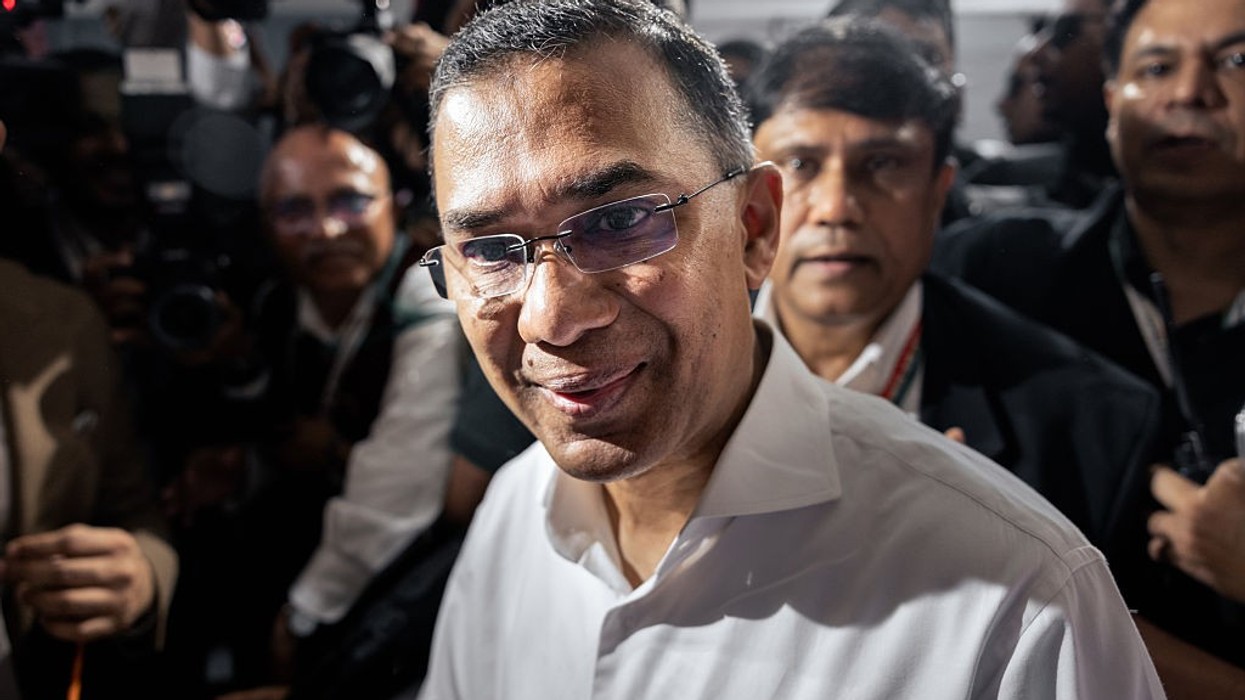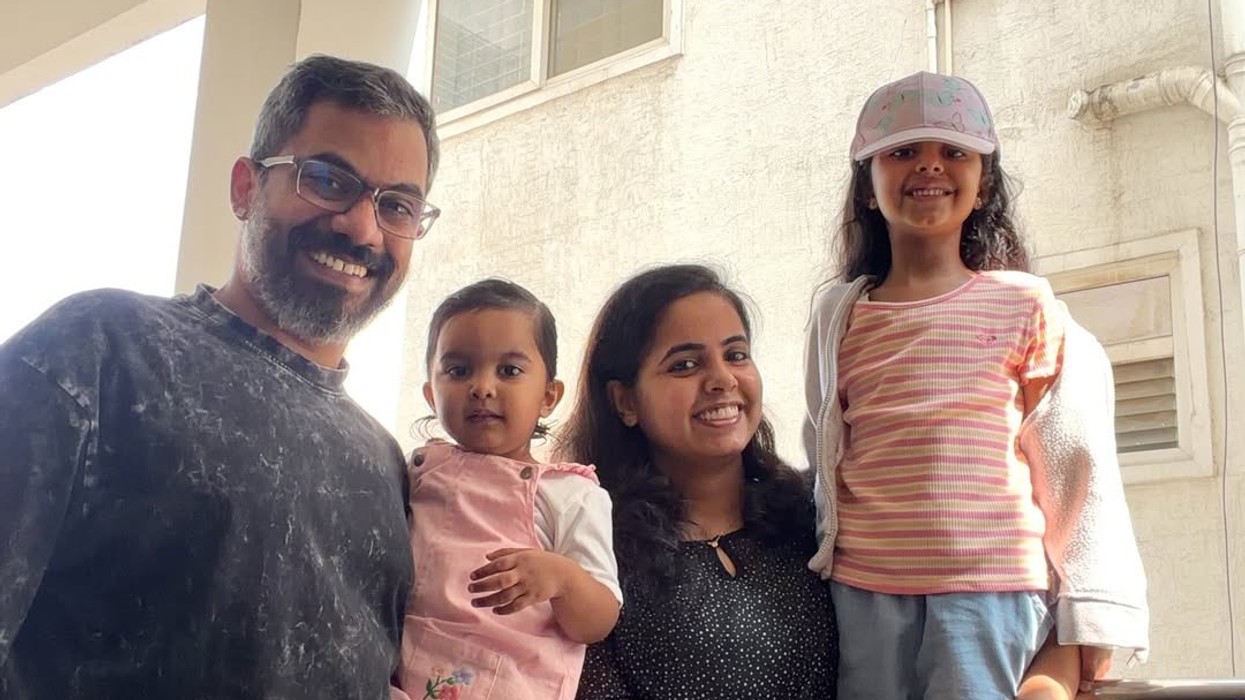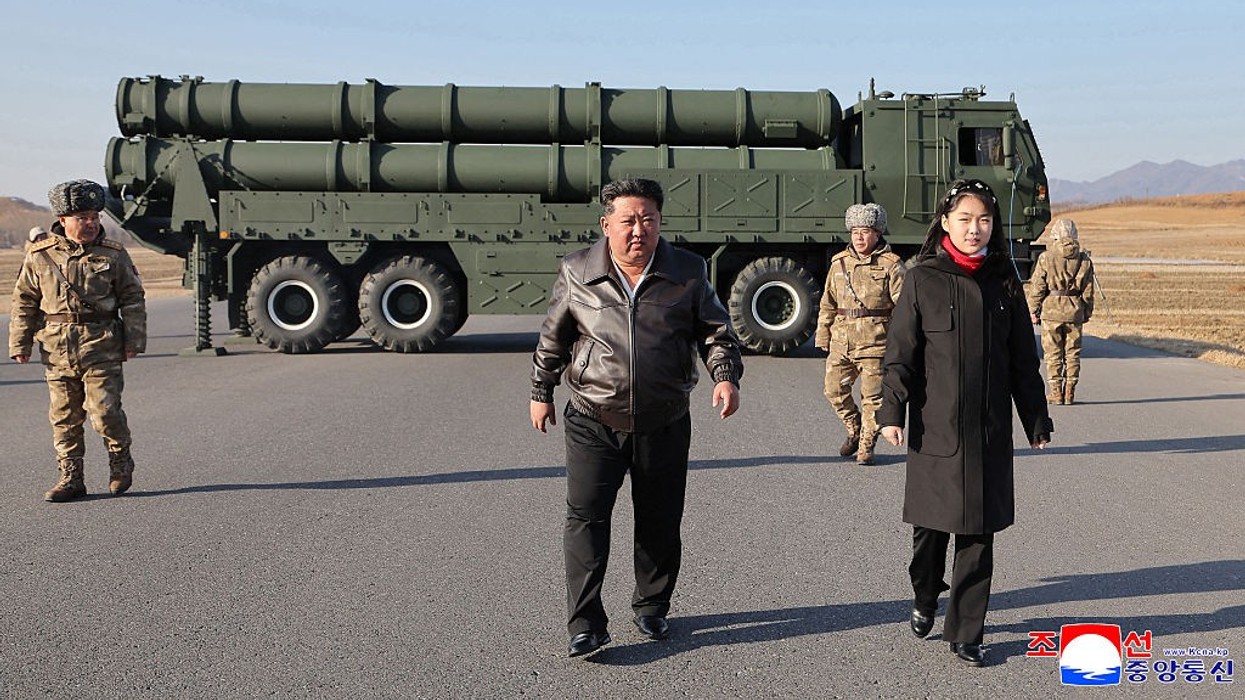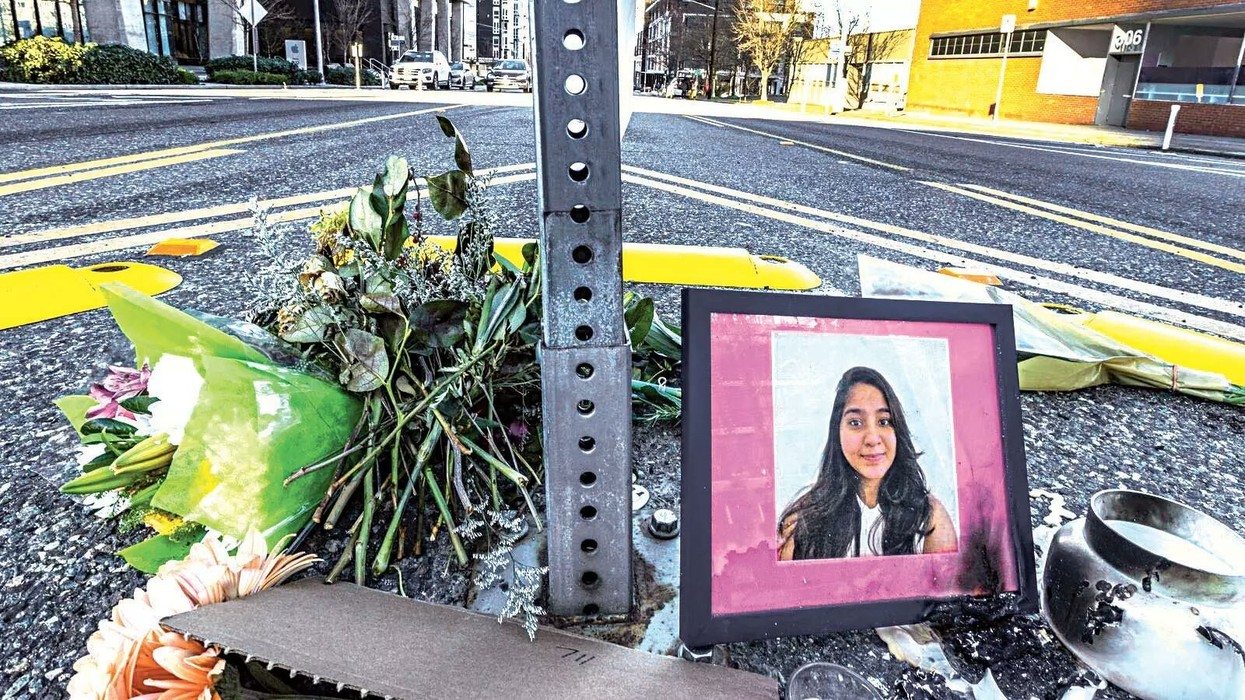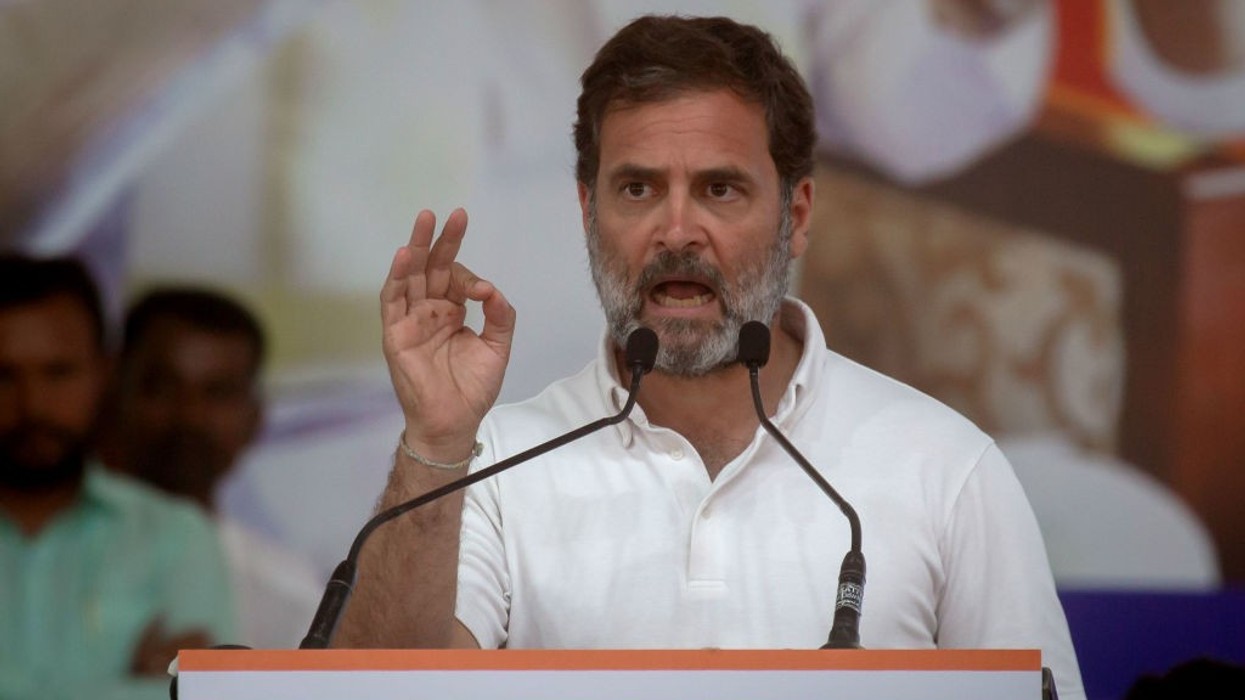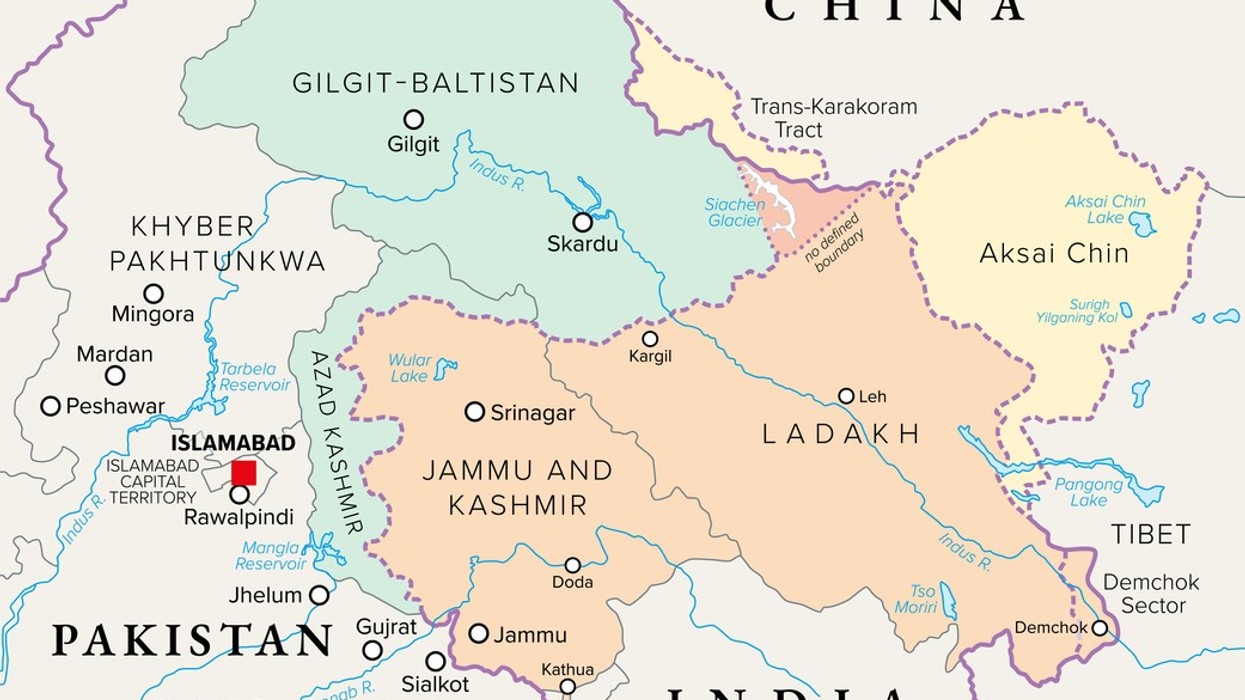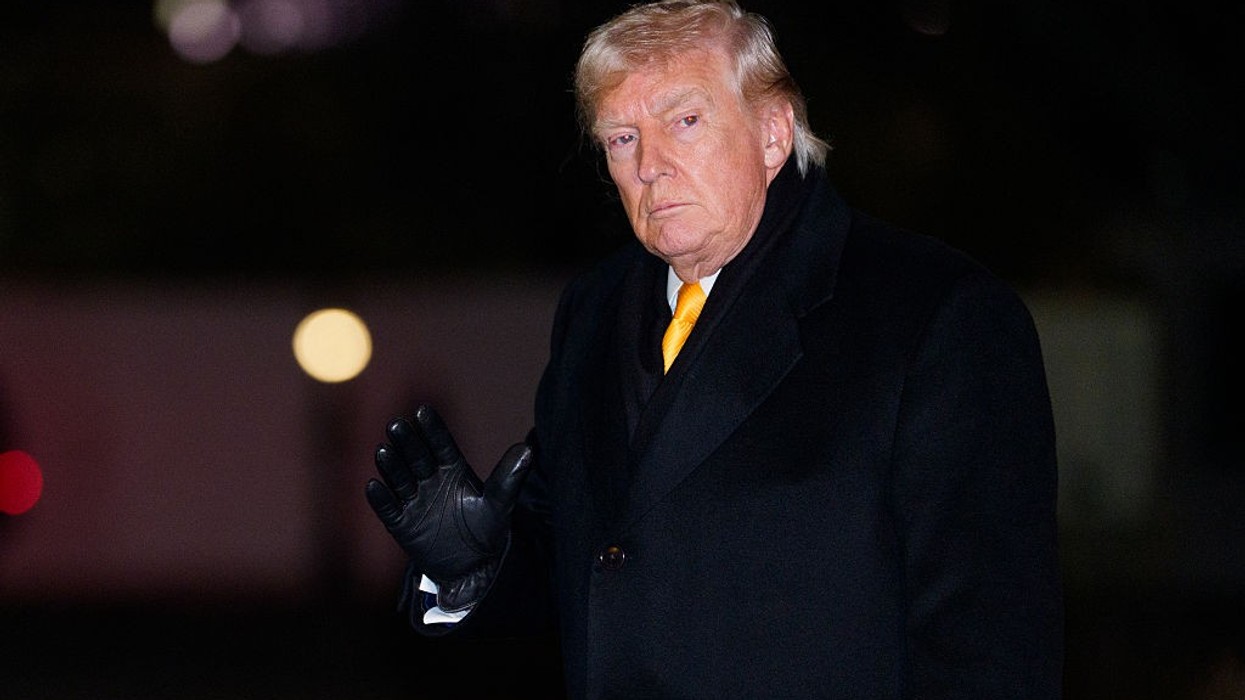CONGRESS leader Shashi Tharoor has said that China is an “absolutely impossible factor to ignore” in India's latest confrontation with Pakistan.
The former deputy foreign minister is heading one of the seven all-party delegations visiting key global capitals to present India's stand on Operation Sindoor and terrorism.
Tharoor also pointed out that before the conflict, there was a thaw in relations between Delhi and Beijing and it was “seemingly making good progress”.
He said India is aware that China has immense economic and military stakes in Pakistan.
Tharoor made these remarks during an interaction with representatives of think tanks organized at the Indian Embassy in Washington on Thursday.
The largest single project under the Belt and Road Initiative is the China-Pakistan Economic Corridor, Tharoor said, adding that 81 per cent of Pakistani defence equipment is from China.
“Defense may be the wrong word here. Offense in many ways,” he quipped.
Military strategy
Tharoor said that India recalibrated its military strategy in real-time to counter threats involving Chinese technology, particularly during the four-day-long Operation Sindoor where Islamabad was leveraging Chinese systems.
He said Pakistan was using Chinese technology and tying to implement the Chinese tactic of 'kill chain', "where radar, GPS, planes, and missiles are all linked together and react instantly".
Tharoor pointed out that India approached the situation differently during the conflict, which allowed it to neutralize key threats.
"We simply did things in a different way; otherwise, we wouldn't have been able to hit 11 airfields or breach the Chinese-supplied defenses," he noted.
He said the Indian forces carried out real-time assessments as the conflict unfolded, prompting a strategic shift.
"So it's clear that assessments were taking place while the fighting was happening and we were recalibrating our strategies in order to end as effectively as we were able to end".
This statement is in line with what India's chief of defense staff, general Anil Chauhan, recently told the media in Singapore.
Chauhan conceded that India lost aircraft, though he didn't specify the number.
But he added that India could rectify the tactical mistake and later flew all its jets to hit long-range targets in Pakistan.
Ties with China
Tharoor noted that despite the tensions between China and India since the Galwan Valley clashes in June 2020, "We had actually begun a thaw with China in September of last year, which was seemingly making good progress before this tragedy occurred.”
Tharoor added that “then we saw a very different China” in terms of its practical support for Pakistan, even on the Security Council.
“We have no illusions about what the challenges are in our neighborhood, but I want to remind you all that India has consistently chosen a path of keeping open channels of communication, even with our adversaries," he said.
"We have tried as much as possible to focus on development, on growth, on trade. Our trade with China is still at record levels. It's not that we are adopting a posture of hostility, but we would be naive” not to be aware of these other currents around, he said.
'India not friendless'
Tharoor dismissed the contention that India was friendless in the UN Security Council downplayed Pakistan's presence in various committees of the council.
He claimed that Pakistan chairing UNSC's Taliban Sanctions Committee and being named vice-chair of the Counter-Terrorism Committee is a designation without much practical consequence.
“These committees all work on consensus and it's not really possible for a chairman to single-handedly get something through that the others resist or push a particular line that other countries are not in favor of,” Tharoor said.
Pakistan, a non-permanent member of the Security Council for the 2025-26 term, will chair the Council’s Taliban Sanctions Committee for 2025 and will be vice-chair of the Counter-Terrorism Committee of the 15-nation UN organ.
Guyana and Russia will be vice-chair of the 1988 Taliban Sanctions Committee. Algeria will chair the 1373 Counter-Terrorism Committee while France and Russia will be the other vice-chairs.
Pakistan will also be co-chair of the Informal Working Groups on Documentation and Other Procedural Questions and on the General UNSC Sanctions Issues.
India has consistently reminded the international community that Pakistan is host to the world's largest number of UN-proscribed terrorists and entities.
Al Qaeda leader Osama bin Laden was hiding in Pakistan’s Abbottabad for years and was killed in an operation by the US Navy Seals in May 2011.
During the Parliamentary delegation’s interaction at the Embassy with think tankers and young professionals, Tharoor was asked about Pakistan chairing the two UNSC sanctions committees.
Noting that there are half a dozen counterterrorism committees of the UNSC, he said that Council members take turns presiding over such bodies.
“So as long as Pakistan is on the Security Council, this kind of “privilege” might come their way… We are not exactly friendless on the Security Council, so we're fairly confident that that is going to be a designation without much practical consequence,” he said.
Meeting with Vance
The delegation, led by Tharoor left India on May 24 and traveled to Guyana, Panama, Colombia and Brazil before arriving in Washington Tuesday (3) for the last leg of the tour.
Tharoor pointed out that the delegation did not go to the United Nations headquarters in New York.
“For us, it's more a series of bilateral exercises with countries that we believe need to be sensitized to our point of view, and as I said, that mission has been successful.”
The delegation led by Tharoor includes Sarfaraz Ahmad (JMM), Ganti Harish Madhur Balayogi (TDP), Shashank Mani Tripathi (BJP), Bhubaneswar Kalita (BJP), Milind Deora (Shiv Sena), Tejasvi Surya (BJP) and India’s former Ambassador to the US Taranjit Sandhu.
It met US Vice President J D Vance, with Tharoor describing the meeting as “excellent”.
A parliamentary delegation from Pakistan led by Chairman of the Pakistan People’s Party and former foreign minister Bilawal Bhutto Zardari also landed in the US.
Bhutto met UN Secretary-General Antonio Guterres with his delegation as well as Security Council Ambassadors in Pakistan’s bid to internationalize the conflict with India as well as the Kashmir issue.
India and Pakistan were engaged in a four-day conflict from May 7, their worst standoff since 1999, before a ceasefire was agreed on May 10.
More than 70 people were killed in missile, drone, and artillery fire on both sides after India launched Operation Sindoor in retaliation for the April 22 terror attack in Pahalgam in Kashmir.
Trump's 'ceasefire' claims
Amid repeated claims by US president Donald Trump that he "helped settle" the tensions between India and Pakistan, Tharoor said mediation between two unequals is not possible, because there is no equivalence between terrorists and their victims.
"…Mediation is not a term that we are particularly willing to entertain. I'll tell you why not.
"The fact is that this implies, even when you say things like broker or whatever, you're implying an equivalence which simply doesn't exist," Tharoor said.
"There is no equivalence between a country that provides safe haven to terrorism, and a country that's a flourishing multi-party democracy that's trying to get on with its business," he said.
Since May 10, when Trump announced on social media that India and Pakistan had agreed to a “full and immediate” ceasefire after a “long night” of talks mediated by Washington, he has repeated his claim over a dozen times that he “helped settle” the tensions between India and Pakistan.
He has also claimed that he told the nuclear-armed South Asian neighbors that America would do a “lot of trade” with them if they stopped the conflict.
On being asked how he would characterize the American role in the conflict, Tharoor said he is "guessing to some degree” that the American role would have been first of all to keep themselves informed, conversations on both sides, and “certainly my government received a number of calls at high levels from the US government, and we appreciated their concern and their interest.”
He said that at the same time, the US must have been making similar calls at the highest levels to the Pakistan side, and “our assumption is that's where, because that's the side that needed persuading to stop this process, that may well have been where their messages really had the greatest effect. But that's guesswork on my part. I don't know what they said to the Pakistanis.”
India has been maintaining that the understanding on cessation of hostilities with Pakistan was reached following direct talks between the Directors General of Military Operations (DGMOs) of the two militaries.

